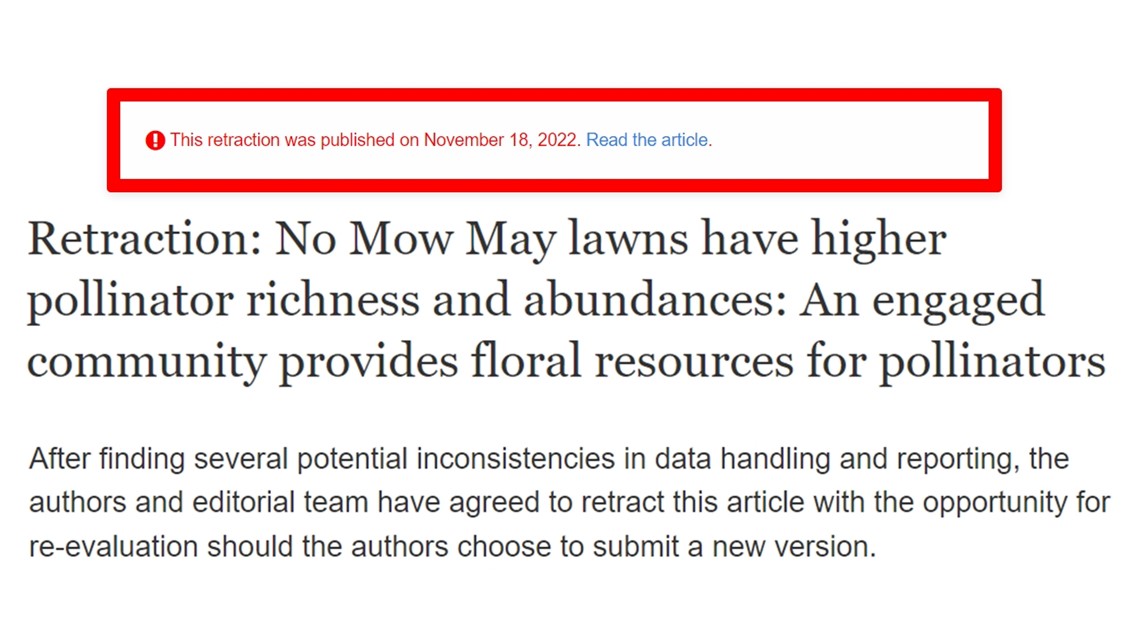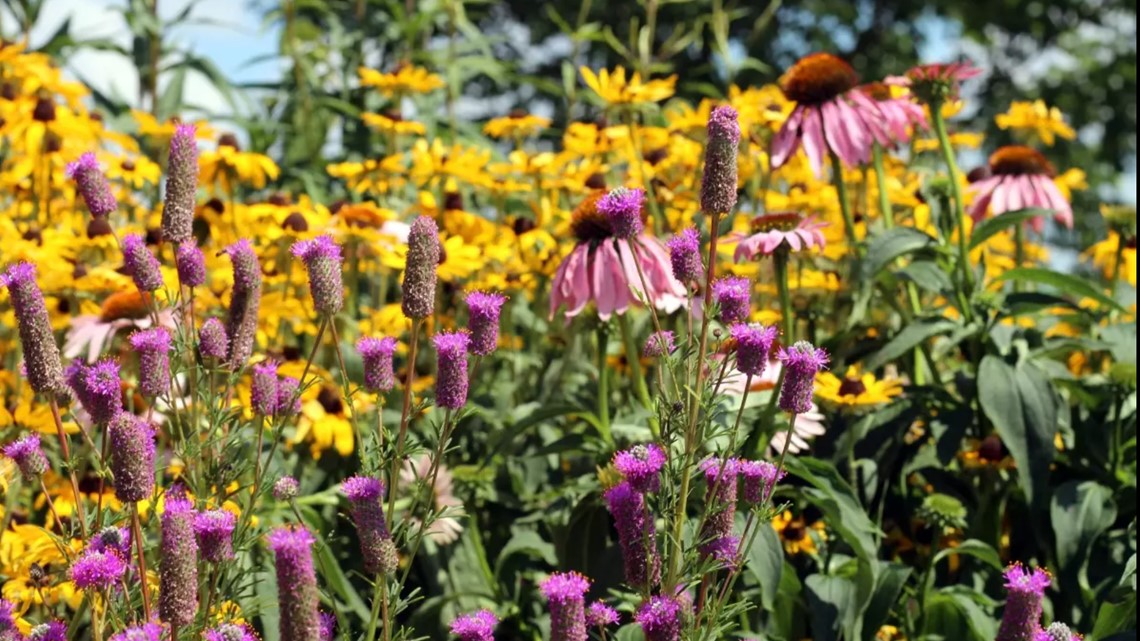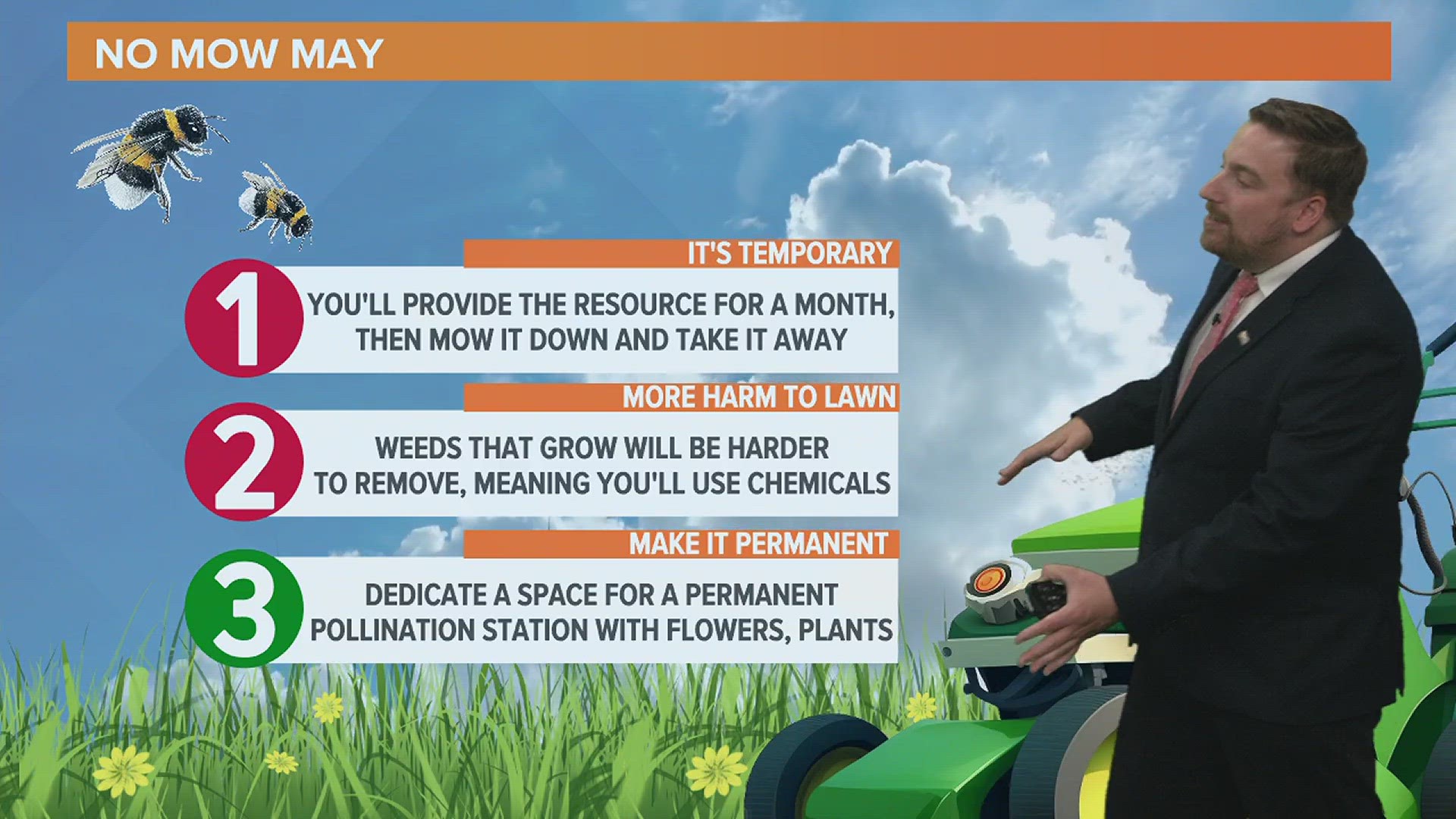MOLINE, Illinois — Spring is in full swing. Lawns are growing, flowers are blooming, and bees are buzzing. A popular online movement, known as 'No Mow May' has taken off across the United States. The practice claims that by neglecting your lawn and lawnmower for the entire month of May, you'd be saving the bee population along with a host of other pollinators by allowing your lawn to bloom, providing food and shelter. However, one scientist who specializes in bee research says the study behind the movement has a lot of issues.
Zach Portman, who studies bees and works as a research scientist at the University of Minnesota, recently documented some of those issues in a post last October, citing questions about how the data was gathered. The issue? Portman says the study reported on multiple species of bees that are not found in Wisconsin in the month of May. He also found that the majority of bees were identified improperly without the use of a microscope. There were also errors in reported plant data as well.


The original study, which was posted online, now carries the following disclaimer, stating it has been retracted due to potential inconsistencies in data handling and reporting. As of today, this retraction remains in place.
More and more experts are also bringing to light other issues brought on by 'No Mow May'. Tamoson Yeh, a turf specialist with the Cornell Cooperative Extension of Suffolk County in New York recently told the Associated Press, "Frankly, it's a terrible idea".
Yeh cites that tall weeds will quickly shade out the grass and also attract potential predators. Not to mention, the whole solution is only temporary. “Bees tell each other where the food is, and pollinators (when they discover an unmown lawn) will remember to come back to it again and again,” Yeh said. “Then on June 1st, when the food disappears, it’s not good for them.”
Also, once weeds take over a lawn, it often takes a lot of herbicides and other chemicals to control them, further damaging the surrounding environment.
A better alternative to 'No Mow May'
Establishing a permanent pollination station is a much better alternative. This will provide both food and shelter year-round for all types of pollinators, and it doesn't even have to take up much space in your yard!


U.S. Fish and Wildlife Service has some really helpful tips on what type of plants to look for when building a pollinator garden. When done correctly, these pollinator-friendly garden spaces can look beautiful and provide food sources all season long without having to deal with weeds.

